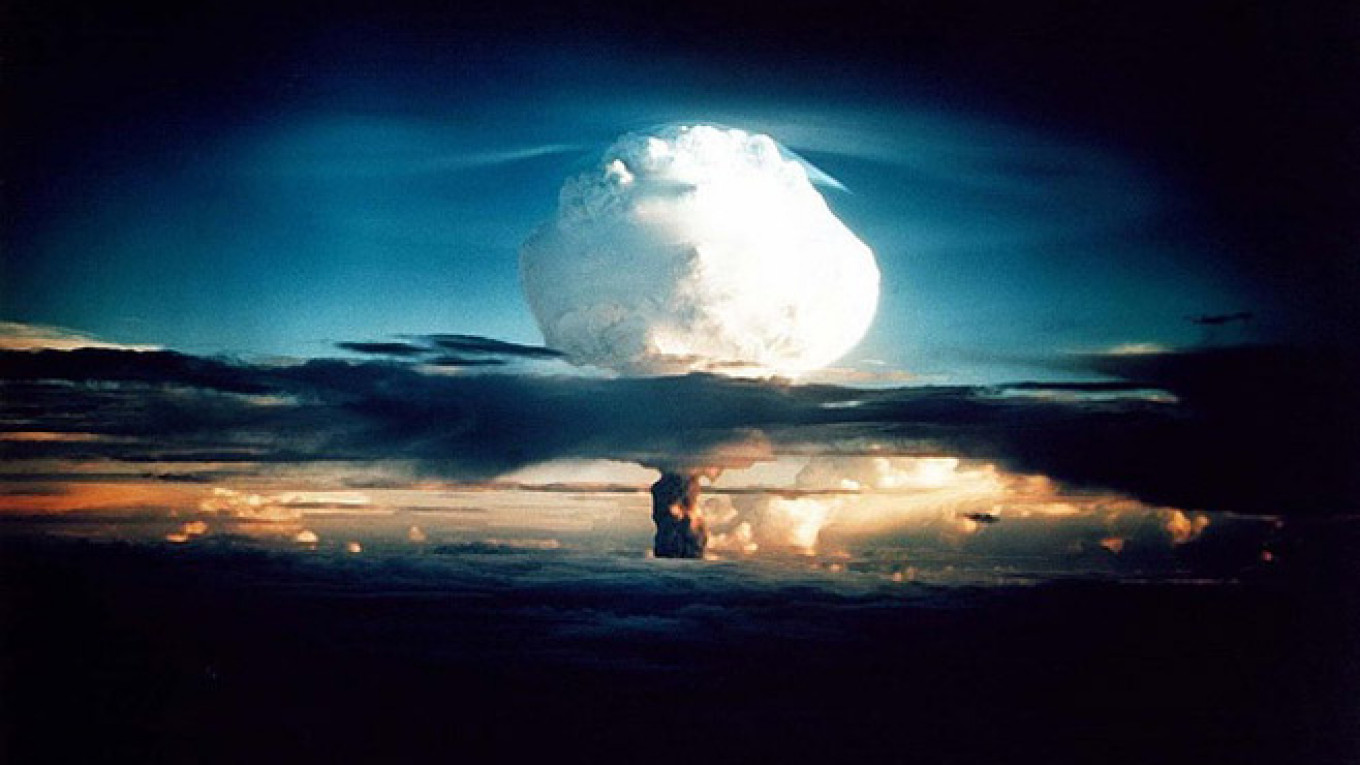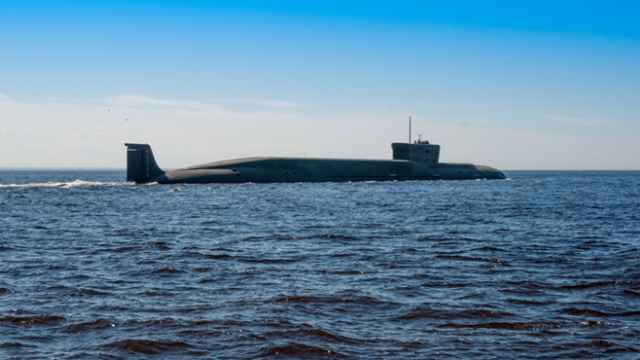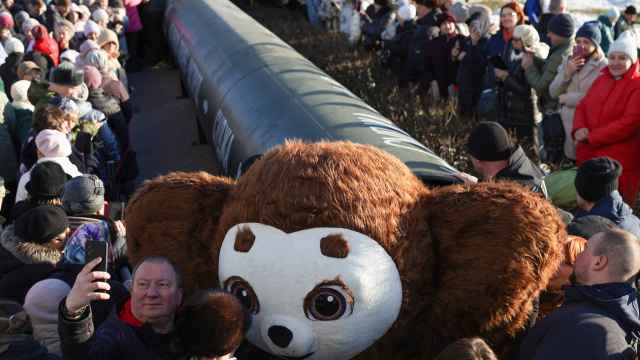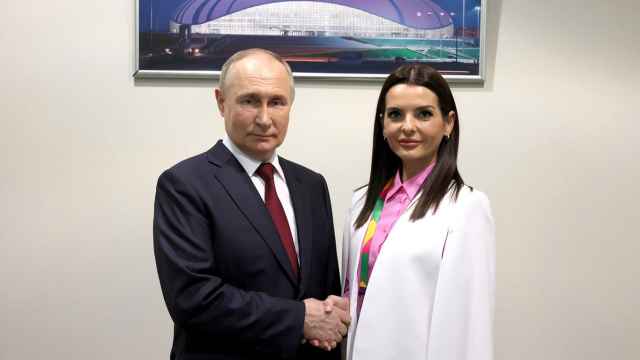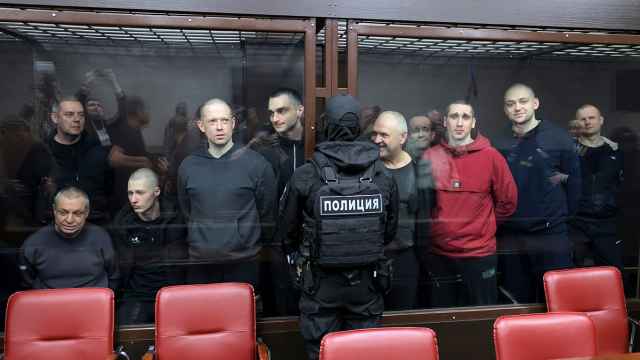It would take years, hundreds of millions of dollars and a willingness to become a global outcast for Ukraine to enact the possibility voiced Sunday by its defense minister of becoming a nuclear power again, military and political analysts said Monday.
"If today we cannot defend [Ukraine], if the world will not help us, we will be forced to return to creating this weapon, which will defend us against Russia," Valery Geletey told reporters at a news conference in Kiev.
Geletey clarified, however, that changing Ukraine's nuclear status is not on the agenda right now.
Dmitry Rogozin, Russia's outspoken deputy prime minister in charge of the state armaments program, reacted to the suggestion with sarcasm.
"I've heard the one about a monkey and a hand grenade. But this is the first time I've heard of a monkey dreaming about a nuclear one," Rogozin wrote on Twitter on Sunday night.
But is Ukraine's nuclear ambition even remotely realistic?
Diplomatic Cost
When Ukraine became independent in 1991 following the collapse of the Soviet Union, it found itself in possession of the third-largest nuclear stockpile in the world. By June 1996, it had transferred all its nuclear warheads to Russia and acceded to the Treaty on the Non-Proliferation of Nuclear Weapons (NPT) as a non-nuclear state.
Ukraine's accession to the treaty was contingent on security and territorial integrity guarantees given to it by Russia, the U.S. and Britain when they signed the Budapest Memorandum in 1994.
Russia's annexation of Crimea in March rendered the Budapest Memorandum null and void, and therefore Ukraine can also relinquish its obligations under the NPT treaty, several Ukrainian parliament deputies argued at the time. One Verkhovna Rada lawmaker, Sergei Kaplin, claimed that the state could produce a nuclear weapon in two years at a cost of $3.4 billion.
A state can withdraw from the NPT at three months' notice in the event that "extraordinary events, related to the subject matter of this treaty, have jeopardized the supreme interests of its country." So far the only country that has followed this path is North Korea. India, Pakistan, South Sudan and Israel are non-signatory states.
"If Ukraine makes such a decision, it will essentially mean that its current political allies — the U.S., European Union and others — will have to abandon Kiev," Pyotr Topychkanov, coordinator of the Carnegie Moscow Center's nonproliferation program, told The Moscow Times.
"Nobody will support Ukraine, not Europe or China. In practice it will be considered a rogue state, just like North Korea," Topychkanov said in a phone interview.
Technical Hitches
Even if Ukraine went ahead and attempted to develop its own nuclear weapon, it would take years, if not decades, and would deplete the country's already scarce resources, analysts said.
"Ukraine's economic standing today is such that it will be close to impossible to create a nuclear bomb," Colonel General Viktor Yesin, former chief of staff of the Russian Strategic Rocket Forces, told The Moscow Times.
Ukraine currently makes Dnepr intercontinental ballistic missiles — including for Russia — at its Yuzhmash plant in Dnipropetrovsk. It also has reserves of uranium and missile silos. It could use its 15 nuclear reactors, most of them Soviet-built, to enrich uranium, instead of using centrifuges like Iran.
It would cost up to $500 million to do, according to nuclear analysts.
The most difficult task for Ukraine would be to produce nuclear warheads, which in Soviet times were only produced on the territory of present-day Russia, unlike other sensitive technologies that were scattered across Ukraine.
"Ukraine has some scientific laboratories in Kharkiv: It has the know-how, but lacks the means" [factories], said Yesin.
Ukraine could theoretically create a dirty bomb — a device combining radioactive materials with conventional explosives — but that would make Ukraine an irredeemable pariah, he added.
Political Expediency
According to the Kiev-based political analyst Vladimir Fesenko, Ukraine's Defense Minister Geletey has found himself under mounting political and public scrutiny following a series of defeats suffered by the Ukrainian army during fighting against pro-Russia insurgents in the country's east.
"Talking about nuclear arms is a classic PR ploy, he wants to shift attention to a completely different and also essentially insignificant topic," Fesenko, head of the Penta Center for Political Research think tank, told The Moscow Times.
The idea of going nuclear is promulgated by certain politicians in Ukraine every now and then, but so far there has been no real substance behind it, he said.
In addition, Ukraine needs to respond to what it sees as military threats from Russia today, while a nuclear bomb can only be ready in a decade, according to Topychkanov of the Moscow Carnegie Center.
"Nobody should be scared, as this is essentially all hot air," agreed Esin.
Contact the author at i.nechepurenko@imedia.ru
A Message from The Moscow Times:
Dear readers,
We are facing unprecedented challenges. Russia's Prosecutor General's Office has designated The Moscow Times as an "undesirable" organization, criminalizing our work and putting our staff at risk of prosecution. This follows our earlier unjust labeling as a "foreign agent."
These actions are direct attempts to silence independent journalism in Russia. The authorities claim our work "discredits the decisions of the Russian leadership." We see things differently: we strive to provide accurate, unbiased reporting on Russia.
We, the journalists of The Moscow Times, refuse to be silenced. But to continue our work, we need your help.
Your support, no matter how small, makes a world of difference. If you can, please support us monthly starting from just $2. It's quick to set up, and every contribution makes a significant impact.
By supporting The Moscow Times, you're defending open, independent journalism in the face of repression. Thank you for standing with us.
Remind me later.


